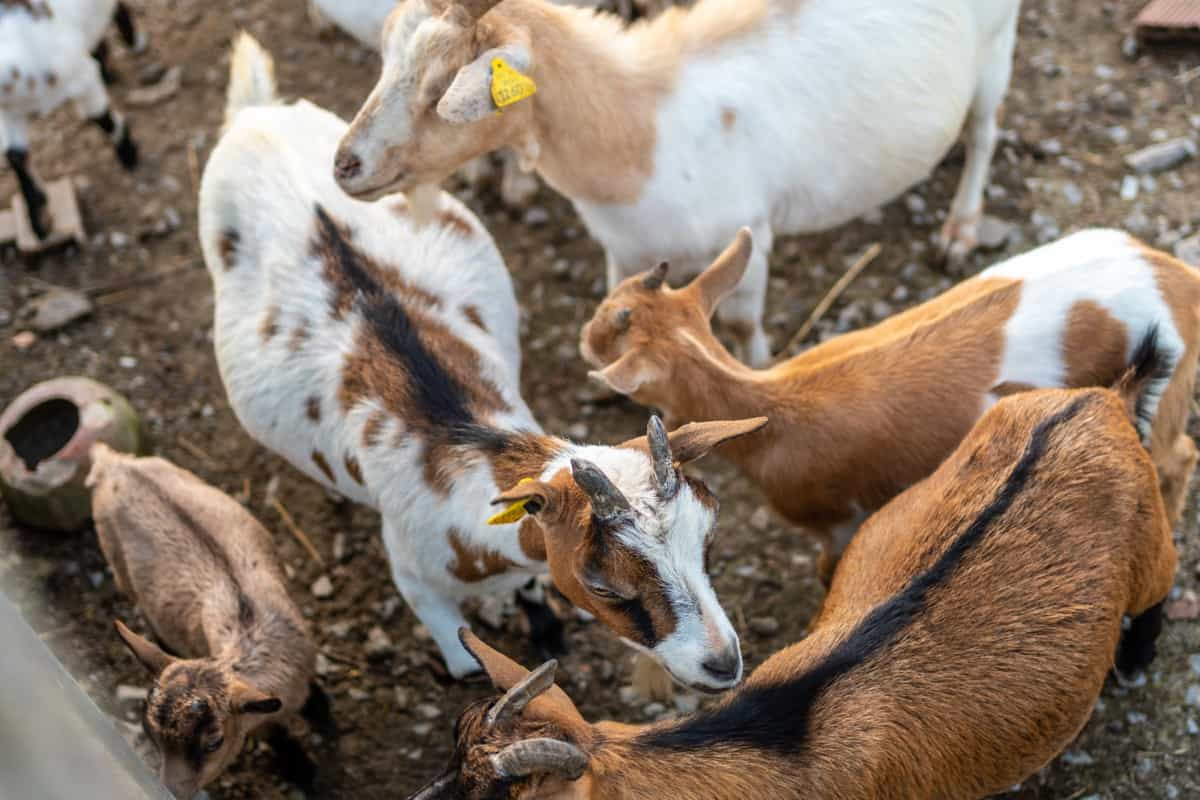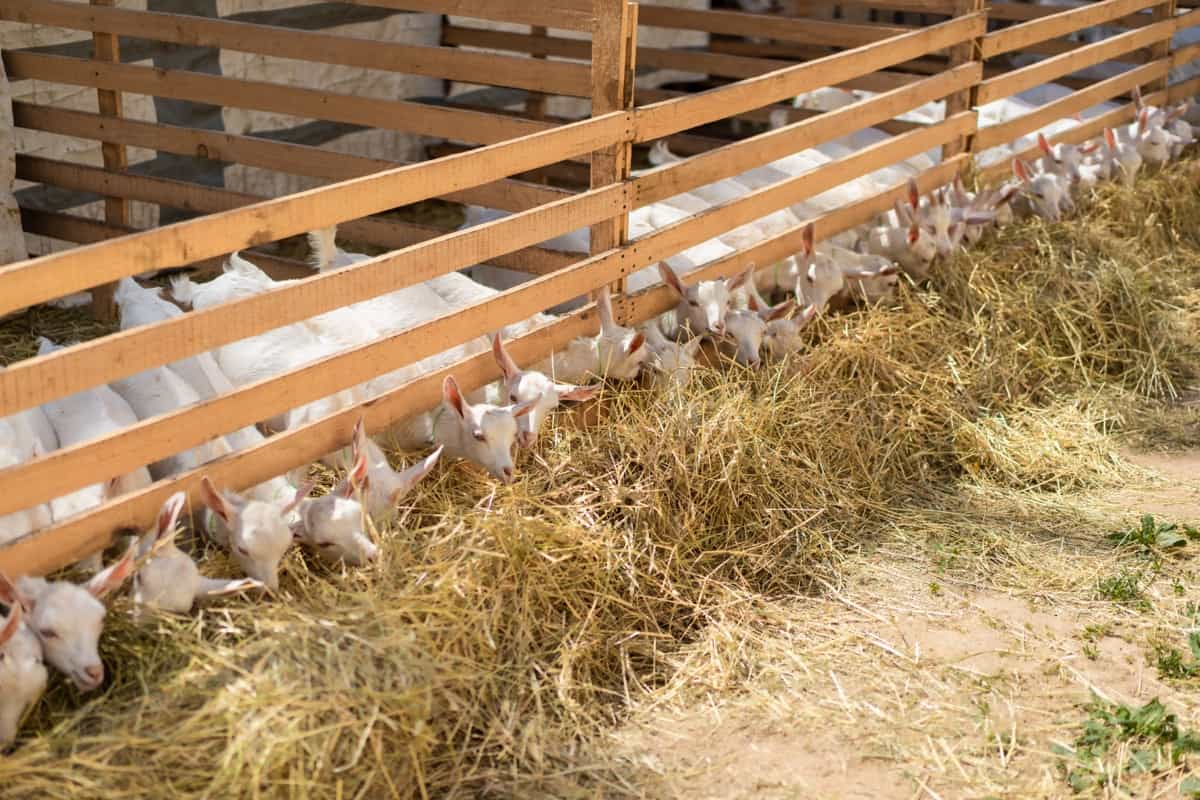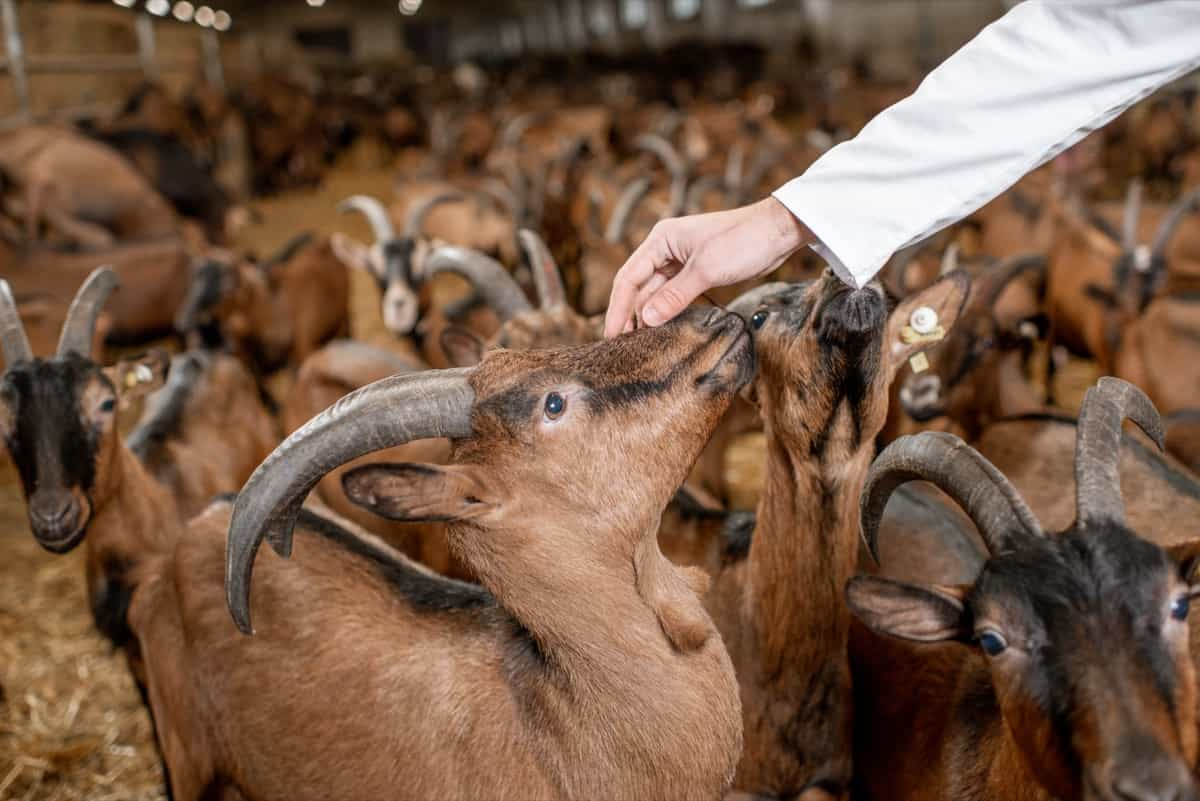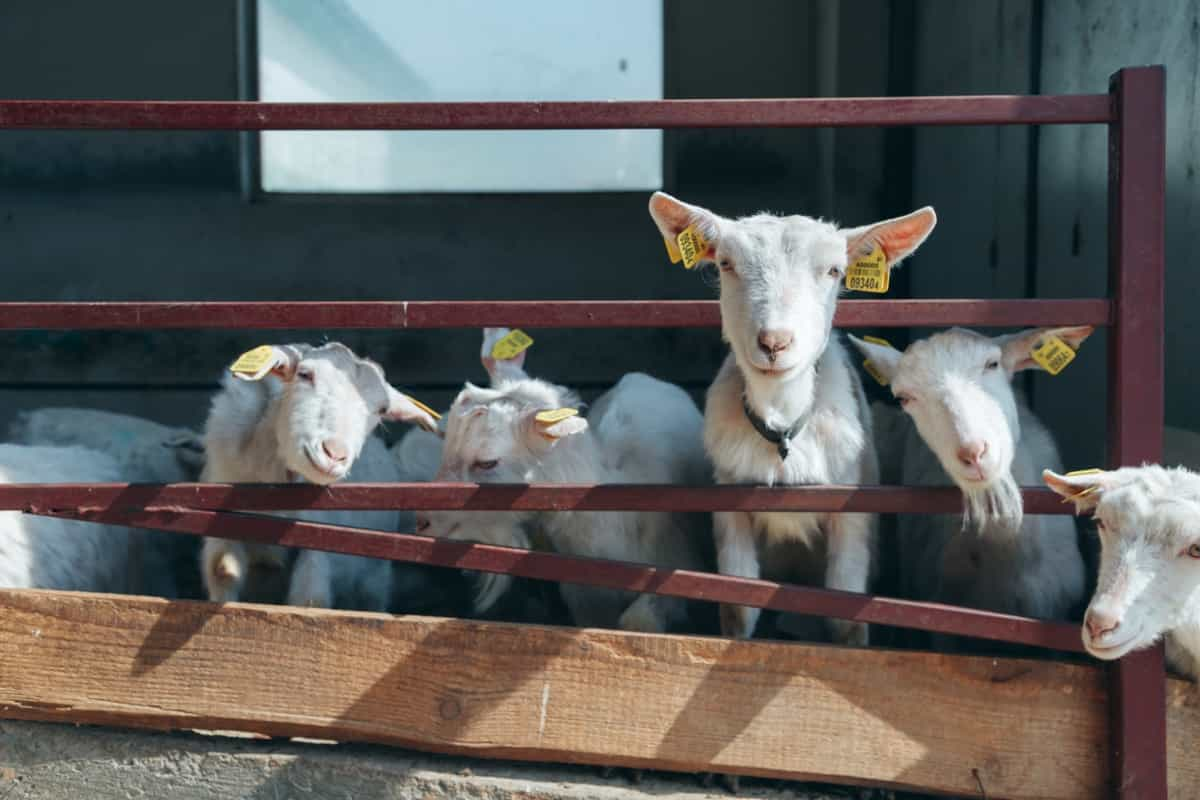When goat farming is done correctly, it can be a rewarding and profitable endeavor. However, there are some common mistakes that farmers make which can have a negative impact on the health and productivity of their goats. In this article, we will discuss ten important mistakes to avoid in goat farming to ensure the well-being and success of your goat flock.

10 Common Mistakes to Avoid in Goat Farming
Neglecting Proper Housing and Shelter
One of the biggest mistakes in goat farming is neglecting the importance of proper housing and shelter for your goats. Goats need a clean, dry, well-ventilated shelter that protects them from extreme weather conditions. It should also have enough space to accommodate the entire flock comfortably. Failure to provide adequate housing can lead to stress, disease, and reduced productivity in goats. Therefore, it is crucial to invest in suitable housing to ensure the overall welfare of your goats.
Inadequate Fencing for a Goat Flock
Another mistake that goat farmers often make is inadequate fencing for their flock. Goats are notorious escape artists and can easily jump over or squeeze through poorly constructed fences. It is essential to have sturdy and secure fencing that prevents goats from wandering off and protects them from predators. Regularly inspect the fencing for any damages and promptly repair them to maintain the safety of your goats.
Poor Nutrition and Feeding Practices of Goats
Goats’ health and productivity are greatly impacted by proper nutrition. Many goat farmers make the mistake of providing inadequate or imbalanced diets to their animals. Goats require a diet that includes a variety of high-quality forage, such as grasses and browse, supplemented with grains, minerals, and vitamins.
Failure to provide a well-balanced diet can lead to nutritional deficiencies, poor growth, and reduced milk production. It is crucial to consult with a veterinarian or a goat nutritionist to develop a suitable feeding plan for your goats based on their age, breed, and production goals.
Lack of Clean Water Supply to Goats
Water is an essential component of a goat’s diet and overall health. Some farmers make the mistake of not providing their goats with a constant supply of clean and fresh water. Inadequate water intake can lead to dehydration, decreased milk production, and other health issues. You should always provide clean water to your goats, especially during hot weather or during lactation. Regularly clean the water troughs or containers to prevent the growth of algae or bacteria.
Ignoring Regular Veterinary Care
The most critical mistake goat farmers make is neglecting regular goat care for their goats. Just like any other livestock, goats require routine check-ups and vaccinations to prevent and treat diseases. Establish a good working relationship with a knowledgeable and experienced veterinarian who can provide guidance on proper goat health management.
In case you missed it: Toggenburg Goat Breed: Origin, Characteristics, Size, Milk Production, Price, Pros, and Cons

Regular veterinary care includes vaccinations, deworming, and hoof trimming. Vaccinations protect goats from common diseases such as tetanus, pneumonia, and enterotoxemia. Deworming helps control internal parasites that cause weight loss, poor growth, and decreased productivity. Hoof trimming is important to prevent hoof overgrowth and the development of hoof-related issues.
Overcrowding of Goats
Overcrowding can lead to various problems, such as stress, the spread of diseases, and decreased productivity. Goats need sufficient space to move around, exercise, and establish their social hierarchy. Overcrowding can also result in unsanitary conditions, which can lead to the accumulation of waste, diseases, and parasites. It is crucial to provide adequate shelter and pasture areas for your goats, considering their breed, size, and age.
Ideally, adult goats should have access to at least 200 to 250 square feet of pasture and 15 to 20 square feet of indoor space. To avoid overcrowding, it is important to plan and manage your herd size properly. Consider factors such as available resources, the carrying capacity of your farm, and the desired production level. Overcrowding not only compromises the health and well-being of your goats but also affects their overall productivity and profitability.
Inadequate Waste Management of Goats
Maintaining a healthy and hygienic environment for goats requires proper waste management. Unmanaged waste can cause various problems, including spreading diseases and contamination of water sources. One mistake to avoid is allowing waste to accumulate in the goat pens or grazing areas. This can attract flies and other pests, harming the goats’ health. Another mistake is not disposing of waste properly. It is important to have a designated area for waste disposal and to remove and dispose of the waste responsibly regularly.
In case you missed it: Can Goats Eat Bread, Cheese, Bananas, Rice, Apples, Peanut Butter: What Goats Can’t Eat Around Your Homestead?

Failure to Identify and Address Behavioral Issues
Goats are social animals and can exhibit various behavioral issues if not properly managed. Failure to identify and address these issues can lead to stress, aggression, and reduced productivity. Some common behavioral issues in goats include excessive aggressiveness, excessive vocalization, and repetitive behaviors. It is essential for goat farmers to observe their goats closely and address any behavioral issues promptly. This can be done through proper socialization, environmental enrichment, and providing a well-balanced diet.
Inadequate Biosecurity Measures of a Goat Flock
As the name implies, biosecurity focuses on preventing the introduction and dissemination of diseases among animals. One common mistake is the failure to quarantine new goats before introducing them to the existing flock. This can cause the transmission of diseases, which can quickly spread and cause devastating consequences.
It is essential to isolate new goats for a specific period and monitor their health before integrating them with the rest of the herd. Ensure your goats are kept in a clean and sanitized environment. This includes regularly cleaning their living quarters, such as barns or sheds, and removing potentially contaminated materials. Additionally, disinfecting surfaces and equipment regularly prevents pathogens from spreading.
Lack of Proper Record-keeping With Your Goats
Another mistake goat farmers often make is the lack of proper record-keeping with their goats. Effective management and decision-making must keep accurate and detailed records. Many farmers overlook the importance of documenting essential information such as breeding records, medical history, feed consumption, and milk production.
In case you missed it: 10 Best Goat Breeds for Pets: Popular Choices for Pet Owners

Without proper record-keeping, it becomes challenging to track the performance and health of individual goats, identify breeding patterns, and optimize nutrition and healthcare practices. To avoid this mistake, it is recommended to maintain a comprehensive record system that includes all relevant information about your goats.
Conclusion
In conclusion, avoiding these ten common mistakes in goat farming can significantly contribute to the success and well-being of a goat farm. By prioritizing these aspects, goat farmers can create a healthy and thriving environment for their goats, ensuring their productivity and overall profitability.
- Feed Your Flock for Less: Top 10 Tips to Save on Chicken Feed
- Ultimate Guide to Ossabaw Island Hog: Breeding, Raising, Diet, and Care
- Hatching Answers: The Top 10 Reasons Your Chickens Aren’t Laying Eggs
- Eggs and Economics: Breaking Down the Cost of Raising Backyard Chickens
- Defend Your Greens: Proven Methods to Keep Iguanas Out of Your Garden
- Ultimate Guide to Cinnamon Queen Chicken: A Comprehensive Guide for Beginners
- Ultimate Guide to California Tan Chicken: Breeding, Raising, Diet, Egg-Production and Care
- Ultimate Guide to Marsh Daisy Chicken: Breeding, Raising, Diet, and Care
- 10 Types of Chicken Farming Businesses You Can Start for Profits